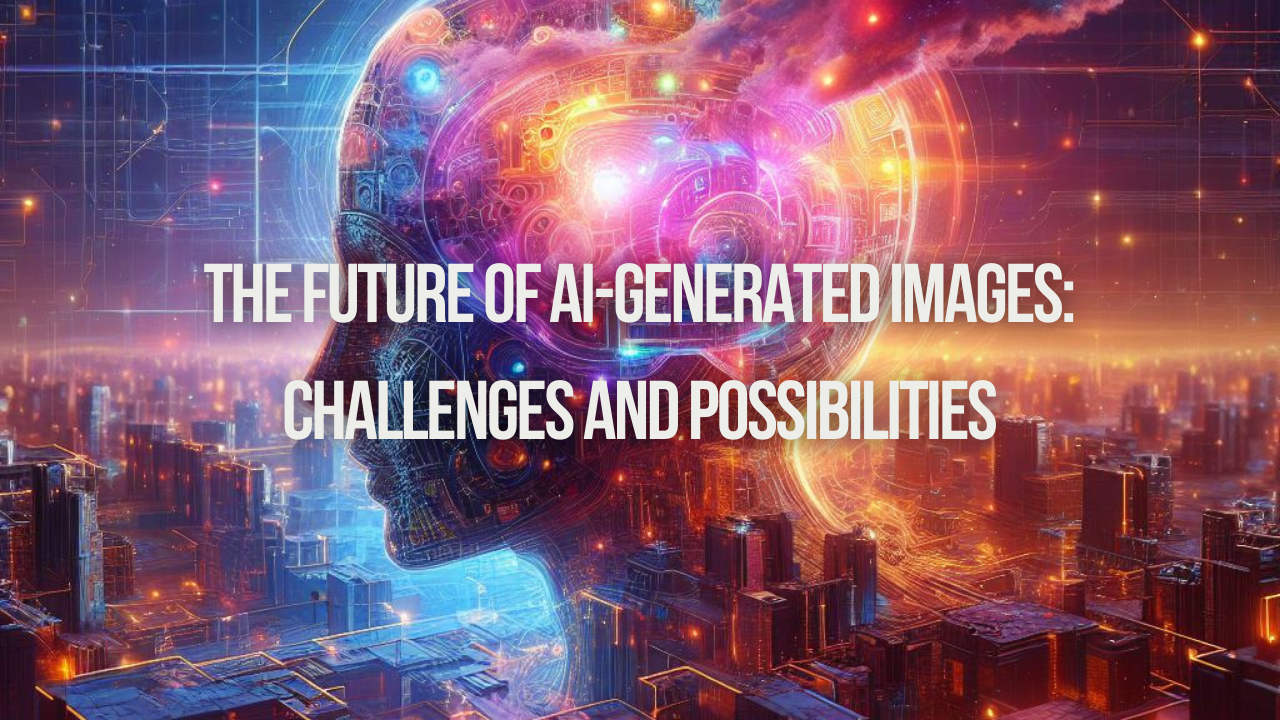Imagine a world where computers can solve problems in seconds that would take today’s supercomputers years to crack. This isn’t science fiction; it’s the promise of quantum computing. As we stand on the brink of this technological revolution, our digital landscape is about to undergo an extraordinary transformation. Quantum computing harnesses the strange and fascinating principles of quantum mechanics, pushing boundaries and redefining what machines are capable of achieving.
From artificial intelligence advancements to breakthroughs in drug discovery, quantum technology opens doors previously thought firmly shut. Join us as we explore how this revolutionary field is reshaping industries and altering our understanding of computation itself. Prepare for an exciting journey into the exhilarating realm where physics meets technology—a journey that promises to change our world forever!
What is Quantum Computing?
Quantum computing is a groundbreaking approach to processing information. Unlike classical computers, which use bits as the smallest unit of data, quantum computers utilize qubits. These qubits can exist in multiple states simultaneously due to superposition.
This unique property enables quantum systems to perform complex calculations at unprecedented speeds. Quantum entanglement further enhances this capability, allowing qubits that are entangled to share information instantly over vast distances.
The result? A new paradigm for problem-solving that dramatically outpaces traditional methods. Imagine algorithms capable of unraveling intricate problems in cryptography or optimization tasks in mere moments rather than days or weeks.
As researchers delve deeper into this technology, its potential applications could reshape industries and redefine our understanding of computation itself. The possibilities are not just theoretical; they promise a future where computational limits expand beyond current imagination.
History and Development of Quantum Computing
The journey of quantum computing began in the early 1980s. Pioneers like Richard Feynman and David Deutsch envisioned computers that harnessed the peculiar principles of quantum mechanics.
Feynman’s groundbreaking paper proposed a new type of computation capable of simulating physical systems more efficiently than classical computers. This idea sparked interest among physicists and computer scientists alike.
In the following decades, significant milestones emerged. Peter Shor developed algorithms that could factor large numbers exponentially faster than classical methods, showcasing potential applications for cryptography.
As technology progressed, companies began investing heavily in research and development. Organizations like IBM and Google entered the race to build practical quantum machines.
By the late 2010s, prototypes were becoming more common. These developments indicated a shift towards seeing quantum computing not as mere theory but as a burgeoning reality on the horizon.
Key Differences between Classical and Quantum Computing
Classical computing relies on bits, which are binary units of data. Each bit is either a 0 or a 1, acting as the fundamental building blocks for all computations.
Quantum computing shifts this paradigm with qubits. Unlike traditional bits, qubits can exist in multiple states at once due to superposition. This allows quantum computers to process vast amounts of information simultaneously.
Another significant difference lies in entanglement. In classical systems, operations on one bit do not affect others directly. However, entangled qubits can influence each other instantly over distances, creating powerful correlations that enhance computational capabilities.
While classical computers excel at sequential processing tasks, quantum computing thrives in solving complex problems quickly. Its potential revolutionizes fields like cryptography and drug discovery by tackling challenges beyond the reach of classical systems.
Potential Applications of Quantum Computing
Quantum computing holds immense promise across various sectors. One of the most exciting applications lies in drug discovery. By simulating molecular interactions at unprecedented speeds, researchers can identify potential treatments more efficiently than ever before.
Financial modeling is another area ripe for disruption. Quantum algorithms can process vast datasets and optimize trading strategies, leading to smarter investment decisions with reduced risks.
Additionally, quantum computing offers enhanced capabilities in cryptography. As traditional encryption methods become vulnerable, quantum technology paves the way for unbreakable security systems that protect sensitive information.
Logistics and supply chain management also stand to benefit significantly. Complex optimization problems that previously took days to solve can be tackled in mere seconds using quantum processors.
The field of artificial intelligence will see advancements as well. Quantum machine learning could lead to breakthroughs in pattern recognition and data analysis, radically transforming how we interact with technology daily.
Challenges and Limitations of Quantum Computing
Quantum computing, while groundbreaking, faces significant hurdles. One major challenge is qubit stability. Qubits are highly sensitive to their environment. Even minor disturbances can lead to errors in calculations.
Another issue lies in scalability. Current quantum systems often involve a limited number of qubits. Expanding these systems without compromising performance remains complex and costly.
Additionally, programming for quantum computers requires new paradigms. Traditional algorithms don’t translate directly into the quantum realm. This creates a steep learning curve for developers and researchers alike.
There’s the question of error correction. Quantum states can easily be disrupted by noise or interference, making reliable computation difficult without advanced error-correcting codes that are still under development.
These challenges present obstacles but also opportunities for innovation as experts work towards realizing the full potential of this technology.
Current Companies and Research in Quantum Computing
Several pioneering companies are leading the charge in quantum computing. Tech giants like IBM and Google invest heavily in research and development. Their goal? To unlock the potential of quantum algorithms that can outperform classical counterparts.
Startups such as Rigetti Computing and D-Wave Systems also contribute significantly to this dynamic field. They focus on building accessible quantum processors for developers, pushing boundaries further every day.
Universities play a pivotal role too. Institutions like MIT, Stanford, and Caltech foster collaboration between academia and industry. Researchers there work tirelessly to advance both theoretical frameworks and practical applications.
Governments worldwide recognize its importance as well. Initiatives in the U.
S., Europe, and China aim to bolster national security through advancements in quantum cryptography.
As investment grows, so does innovation—shaping an exciting future for these technologies while redefining our understanding of computation itself.
Future Possibilities and Impact on the World
The future of quantum computing holds immense promise for various sectors. From healthcare to finance, the potential transformations are staggering.
Imagine a world where complex medical simulations lead to breakthroughs in drug discovery at unprecedented speeds. Quantum algorithms could analyze vast datasets, identifying patterns that classical computers might miss.
In finance, risk assessment and fraud detection could become more precise. With real-time processing abilities, companies can respond faster than ever before.
Moreover, industries reliant on logistics and supply chains may optimize their operations significantly through quantum-enhanced predictions. The efficiency gains could reshape economies globally.
As these advancements unfold, ethical considerations around security and privacy will also emerge. Society must navigate this evolving landscape thoughtfully to harness its full benefits while mitigating risks.
Quantum computing isn’t just a technological evolution; it represents a paradigm shift with far-reaching implications for our daily lives and global systems.

Conclusion
Quantum computing stands at the forefront of technological evolution. Its potential is vast, transforming industries from healthcare to finance.
As researchers and companies continue to explore its capabilities, we are likely just scratching the surface. The speed and efficiency of quantum algorithms can redefine problem-solving in ways unimaginable today.
The implications for society are profound. With breakthroughs on the horizon, we could see solutions that address climate change or revolutionize artificial intelligence.
Embracing this technology means embracing a new era of innovation. It invites us to reimagine our digital landscape and challenges us to adapt alongside it.
Each step forward uncovers new possibilities, reminding us how closely intertwined our future is with these advancements in quantum science.
What is Quantum Computing?
Quantum computing is a groundbreaking approach to processing information. It harnesses the principles of quantum mechanics, which govern the behavior of matter and energy at the smallest scales.
Unlike classical computers that use bits as their fundamental units, quantum computers rely on qubits. These qubits can exist in multiple states simultaneously due to superposition, allowing for unparalleled computational power.
Entanglement further enhances this advantage. When qubits are entangled, the state of one instantly influences another, regardless of distance. This interconnectedness creates a network of possibilities that traditional systems cannot match.
As researchers continue to explore this technology, they unlock new frontiers in speed and efficiency. Quantum computing has the potential to solve complex problems much faster than conventional methods ever could. The digital landscape may soon be transformed by these extraordinary capabilities.
How does it differ from Classical Computing?
Quantum computing operates on principles that defy the traditional rules of classical computing. While classical computers use bits as their basic unit of information, quantum computers utilize qubits. These qubits can exist in multiple states simultaneously due to a phenomenon called superposition.
This allows quantum systems to process vast amounts of data at once, unlike classical systems which handle one computation at a time. Moreover, entanglement—a unique property where qubits become interconnected—enables them to work together in ways that enhance computational power.
Classical algorithms often struggle with complex problems involving large datasets or intricate variables. Quantum algorithms have the potential to tackle these challenges more efficiently by exploring numerous possibilities concurrently. This fundamental shift opens doors to innovations previously thought impossible within the digital world.
Advantages of Quantum Computing
Quantum computing offers remarkable advantages that set it apart from traditional systems. One of the most striking benefits is its ability to process vast amounts of data simultaneously. This parallel processing capability enables faster problem-solving for complex tasks.
Another significant advantage lies in quantum algorithms, such as Shor’s and Grover’s algorithms, which can efficiently tackle problems like integer factorization and database searches. These breakthroughs could revolutionize fields from cryptography to optimization.
Moreover, quantum computers excel at simulating molecular structures. This ability paves the way for advancements in drug discovery and materials science. Industries could develop new pharmaceuticals more quickly than ever before.
Quantum entanglement allows for enhanced security measures through quantum encryption techniques. Such innovations promise a more secure digital landscape as our reliance on technology grows stronger every day.
Potential Applications
Quantum computing holds the promise of transforming various sectors. Its potential applications are vast and exciting.
In finance, quantum algorithms can optimize portfolio management. They analyze complex data sets at unprecedented speeds, enhancing decision-making processes.
The healthcare industry stands to benefit significantly as well. Quantum computing aids in drug discovery by simulating molecular interactions quicker than traditional methods.
Supply chain logistics may also see improvements. With better optimization techniques, businesses can reduce costs and improve efficiency.
Artificial intelligence could reach new heights through quantum-enhanced machine learning algorithms. This would enable AI systems to process information far more effectively.
Additionally, climate modeling might become more precise with quantum capabilities. Predicting weather patterns or understanding climate change dynamics could lead to actionable insights for global sustainability efforts.
These applications showcase just a glimpse into how quantum technology is poised to reshape our digital landscape.
Challenges and Limitations
Quantum computing holds immense promise, but it also faces significant challenges. One major hurdle is qubit stability. Quantum bits are notoriously fragile and susceptible to interference from their environment. This instability can lead to errors in calculations.
Moreover, scaling quantum systems remains a daunting task. Building more qubits without sacrificing performance or coherence time requires advanced engineering and materials science.
Another limitation lies in the complexity of algorithms designed for quantum machines. Developing effective software that can harness the full potential of quantum processors is still an evolving field.
Integration with existing technology presents its own setbacks too. Bridging classical networks with future quantum infrastructures poses questions about compatibility and efficiency.
There’s a skills gap in the workforce. A shortage of trained professionals hinders progress as industries race to implement this cutting-edge technology effectively.
Companies and Organizations Investing in Quantum Computing
The race for quantum supremacy is heating up, with numerous companies and organizations diving into the realm of quantum computing. Tech giants like IBM and Google are at the forefront, developing powerful quantum processors that push the boundaries of computation.
Startups also play a crucial role in this ecosystem. Companies such as Rigetti Computing and D-Wave Systems focus on building scalable quantum systems aimed at solving complex problems faster than traditional methods.
Meanwhile, governments worldwide recognize the potential impact of this technology. National labs and research institutes are investing heavily to ensure they don’t fall behind in this critical field.
Collaboration is key too; partnerships between academia and industry foster innovation. As more players join, we can expect groundbreaking advancements that will reshape industries across the globe. The momentum around these investments suggests an exciting future for both tech enthusiasts and businesses alike.

Future Outlook for Quantum Computing
The future of quantum computing holds immense promise. Researchers are tirelessly exploring new algorithms that could solve problems previously deemed impossible for classical computers.
As more companies invest in this technology, we may witness breakthroughs across various sectors. Financial modeling, drug discovery, and complex system simulations stand to benefit significantly from enhanced computational power.
Moreover, as quantum hardware matures, accessibility will increase. This democratization could empower smaller firms and startups to innovate at unprecedented rates.
Quantum communication also shows potential for secure data transmission. With rising concerns about cybersecurity threats, this aspect could reshape how information is shared globally.
Collaborations between academia and industry will likely accelerate advancements. Such partnerships can cultivate fresh ideas while ensuring that developments align with real-world applications.
This dynamic landscape promises exciting shifts in technology and society alike. The ripple effects of these changes might redefine our digital experiences profoundly.
Conclusion: The Impact of Quantum Computing on Society and Technology
Quantum computing stands at the forefront of a technological revolution, promising to reshape our digital landscape. Its unique ability to process vast amounts of information simultaneously opens new doors in various fields, from cryptography to artificial intelligence. As we harness this capability, we may witness breakthroughs that were previously thought impossible.
The potential applications are staggering. Industries such as finance, healthcare, and logistics can leverage quantum algorithms for optimization and predictive modeling. The energy sector could also benefit significantly through improved simulations of complex systems.
Yet challenges remain. Issues like error rates in qubits and the need for stable environments pose significant hurdles that researchers continue to address. Furthermore, as powerful as quantum computers will be, they are not destined to replace classical computers but rather complement them by tackling specific problems more efficiently.
Many organizations are heavily investing in this frontier technology. Tech giants like IBM and Google lead the charge alongside emerging startups focused on niche applications within quantum computing.
As research progresses and more companies enter the fray, society must prepare for an inevitable shift in how we approach problem-solving across multiple sectors. Quantum computing is not just a trend; it represents a fundamental change in our understanding of computation itself.
The impact on both technology and everyday life will be profound—transforming industries while presenting ethical considerations about security and access along the way. This evolution invites us all into a future where possibilities expand exponentially with each discovery made within this captivating field.







